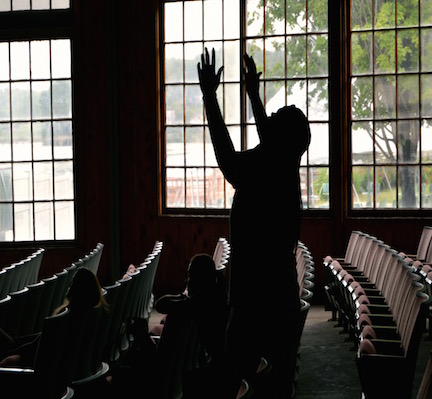
Over the past decade, most American institutions have worked to become more diverse. A combination of social pressure and the collective realization of the importance of diversity have pushed our culture to expand beyond what is comfortable. While the nation slowly grows more diverse, the church seems to struggle to keep up. One reason may be a lack of diversity in leadership roles within the church.
Taylor Davenport is the Coordinator of Communication and Volunteer Engagement for Project Transformation, a church ministry that provides after-school programs and summer camps for children in low-income communities in Nashville, Tennessee.
“All of us, especially the South, struggle with accepting a deviation from the normal. In our culture, ‘normal’— white, male, Christian, able-bodied, and straight,” Davenport said. “But the body of Christ is diverse, so shouldn’t our leadership reflect that?”
Davenport’s mother is a pastor for a Presbyterian USA church in Maryland. The Presbyterian USA (P-USA) is one of only a few denominations that allow women to hold leadership positions.
“In the last few decades, [some churches] have gone through a mini-revival,” Davenport said. “Not just letting ‘them’ enter the doors of the church, but including them in leadership positions.”
Some of the bigger institutions, such as Southern Baptists, Church of Christ and Presbyterian Church of America (PCA) argue that, in accordance with scriptural law, they may not allow women to hold leadership roles.
Lo Alaman is a young African-American man from California who works as the youth minister at The Orchard Church here in Oxford, Mississippi. The Orchard is primarily composed of white middle class families. Since coming on staff, however, Alaman says he has noticed an increase of African-American families who not only have gotten involved with the church, but have expressed a desire to lead.
“It is clear that if diversity is only encouraged at a spectator level, and not welcomed in leadership, it only communicates a value of attendance and not a value of opinion,” Alaman said.
Alaman is also a well-known poet who has been invited to come and perform his poetry at churches across the country. Alaman says that he has noticed this issue is not unique only to churches in the South.
“I believe churches face challenges like fear and complacency which hinder integration.” Alaman said. “It doesn’t appear to be a lack of desire, as much as it is an ignorance as to how to truly [create a] multi-ethnic church.”
Alaman hopes that he can continue to see the church grow in coming years to become more diverse in its leadership and subsequently its members. Alaman acknowledges the great strides the church has made but also recognizes how much further there is to go.
“I desire for the church to look like the kingdom that Jesus desires to see. One that is filled with every nation, tribe and tongue” Alaman said. “I believe that won’t happen until all of those that have been called by God are willing to accept that call together.”
Story by Huntington Maddrey,
ghmaddre@go.olemiss.edu
